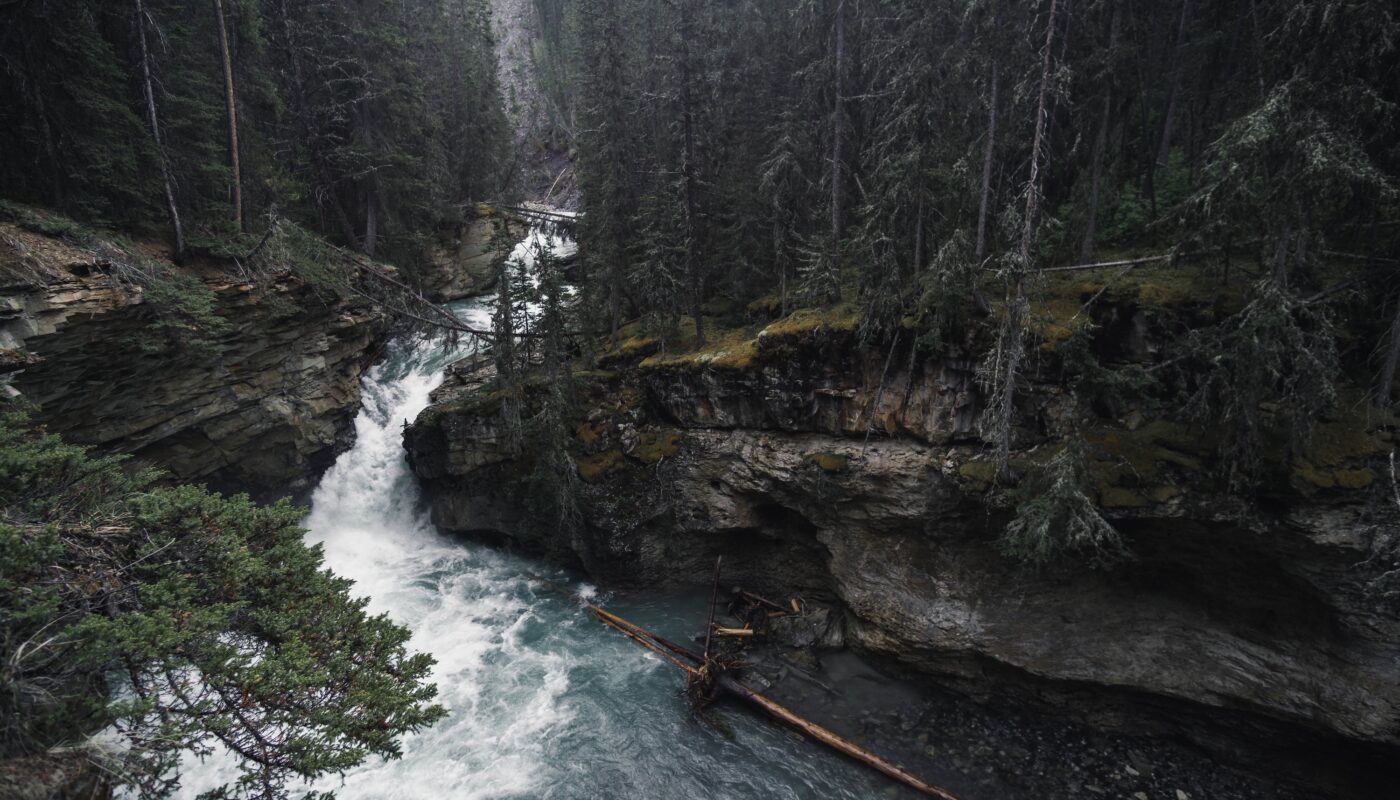I
At first I was certain,
though intrigued,
by the shape of the broken
branch, the way it jutted
above the water so far
from the bank, bark stripped,
splitting grain, flaked
with drab lichen, a few
brighter blades sprouting
from the dank hollow
where two branches parted;
now, only the parting remains.
Random whorls slip past,
spinning up and gone again
as easily as breath
dissolves in summer dusk.
II
From experience I assumed
that in submergence lay
a moldering length of oak.
I could almost see back
to a spring day, years ago,
slick axons sunk deep,
ganglia burrowing the cold
inarticulate dark sodden
with three days rain, the blind
fibers tingling once again
as sunlight blazed in high
bare branches, thrumming
down the long shaft, liquid
life surging up to swell
the crusty buds aching
to break beyond themselves—
till something cracked, and
roots fixed in the pale grip
of their ecstasy were swept
free by spring flood, nothing
to hold but the black rush.
The oak reared its branches
like antlers too majestic
for a modern age, staggered
through the realms of light, roaring
as if aware for the first time
of its proud impractical height, fell
as the dreamer falls, never broke
against the ground, simply
shuddered into the river that was
always there. Roots dangling
in the gap, the trunk sloping
under, pearls of light lingered
in grooves of bark, for minutes
at most, till they, too, were gone.
Farther out branches and twigs
raked muddy water like fence-
row scrub straggling between
fields of freshly turned earth.
III
Now, there it lies,
forgotten, irremediable,
another sunken pillar.
Bass slink through crevices
of limbs thrust in mud.
Fat carp wedge in a cranny,
a cache of black diamonds.
In watery limbo between
mud and sky, lesser branches
hang with weeds and whatever
the river flings upon them,
sway as if unable to forget
the rush of wind and wings.
Grooves of bark silt under,
a field fading in snow,
at night, in late November,
first the sunken furrows,
then the ravaged stalks,
or like the particled descent
of a cold gray sleep
smoothing over the old regrets.
IV
Yet as I drifted back
from my dream, squinching
more carefully in the last
bluish light, I could almost
see in that solitary thing
the shape of a hand,
a human desire, a desperate
clutch at anything brighter,
anything firmer, than the dark
downward pull. Oddly calm,
the river must have roiled
within, limbs thrashed, breath
burned, the terrible flash
of futile insight, the final burst
of voice raging against the flood,
all swept away and swallowed
up in a purling blur.
And, I thought, he cries for me.
V
The darkness was as distance
and I could no longer see
clearly enough to know
which to believe or why.
Then above the hushed river
a great blue heron, the very
color of the dusk, came
gliding, having not seen me
or having seen and disregarded.
Three languid flaps gathered up
what was left of the light
and folded my question under wing.
The bird perched on that
jagged pathetic thing, and I
thought I heard a creak or cry,
faint as a cord pulled taut.
Firm claws through fluting neck,
motionless, the bird seemed,
till I sensed a rhythm of nerves
rippling across the water,
violet, obsidian, black,
the slightest undulations lapping
the low stone where I stood,
and then I knew just what it was.
Photo by Debbie Pan on Unsplash.
John Savoie
John Savoie grew up in southwestern Michigan where Robert Frost, a dash of Stevie Smith, and Poe's Raven mingled in the imagination with the wooded banks and dusky waters of the St Joseph River. At the University of Michigan, his poetry won two Hopwood Awards, and his poems have since appeared in Poetry, Best New Poets, and Poetry in Motion. Currently, he teaches great books at Southern Illinois University Edwardsville.
